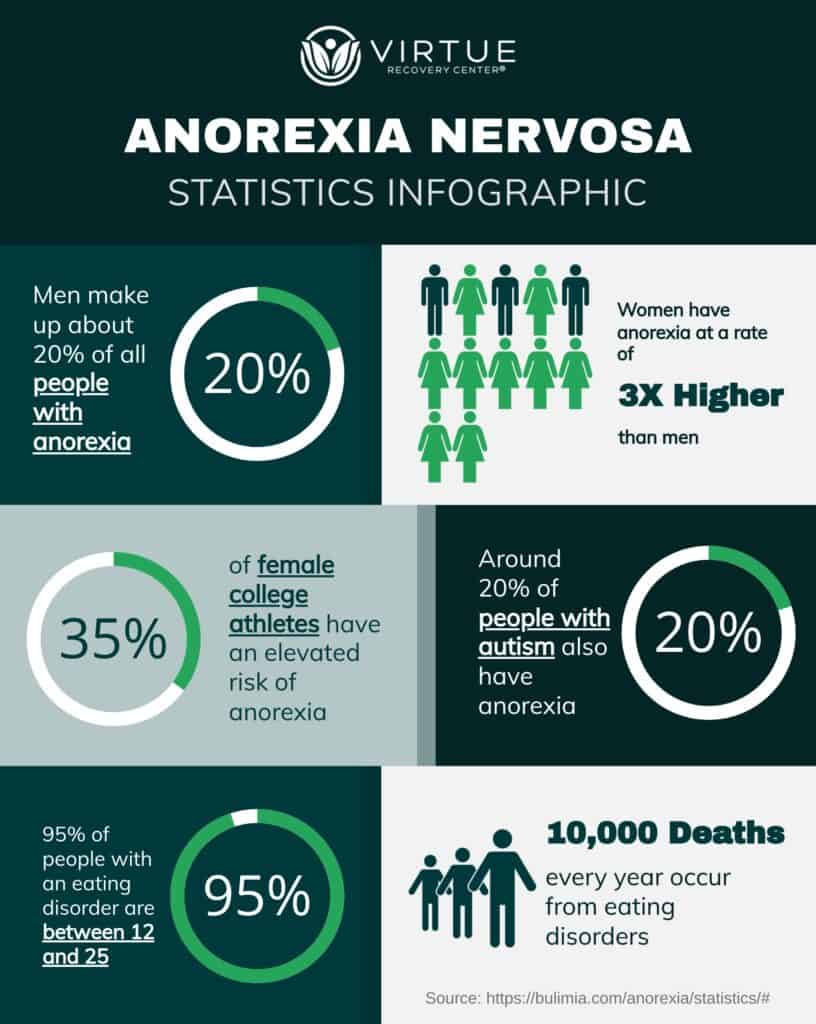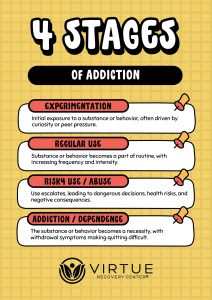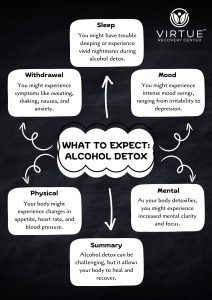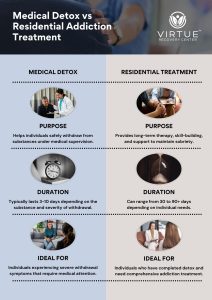Key Takeaways
- Anorexia Nervosa Explained: Anorexia is a dangerous eating disorder that causes people to obsess over their weight and food intake.
- Understanding the Symptoms: Key symptoms include extreme weight loss, distorted body image, and an intense fear of gaining weight.
- Who is Most at Risk: Certain groups, such as women, teens, athletes, and people with autism, are at a higher risk of developing anorexia.
- Early Treatment is Key: Seeking treatment as soon as possible can help prevent serious health problems and improve chances of recovery.
Introduction
Anorexia nervosa is a serious and often fatal eating disorder that affects millions of individuals globally. It entails a very rigorous process of regulating the amount of weight and food consumed, which has adverse effects on the individual’s health. Anorexia is not only a physical disease, but it can also have a severe impact on a person’s psychological state. At Virtue Recovery Las Vegas, we know the significance of timely treatment, and we offer the best anorexia treatment for patients.
Eating disorders affect approximately 9% of the population and cause more than 10,000 deaths annually in the United States. It is essential to know the symptoms and receive the correct treatment.
What is Anorexia Nervosa?
Anorexia nervosa is an eating disorder where individuals severely restrict their food intake because of an intense fear of gaining weight. Even when they are dangerously underweight, people with anorexia often see themselves as overweight. This distorted body image can lead to unhealthy behaviors like skipping meals, over-exercising, or using extreme methods to lose weight.
Anorexia affects both men and women, although women are at a higher risk. 0.9% of women and 0.3% of men in the U.S. struggle with anorexia, with 0.5% to 3.7% of women likely to develop it at some point in their lives.
Key Symptoms of Anorexia Nervosa
Recognizing the signs of anorexia is critical for getting help early. Here are some key symptoms to look out for:
1. Extreme Weight Loss
The most apparent symptom of anorexia is the loss of a considerable amount of weight. Anorexics are usually much thinner than they should be for their age and height, in most cases being underweight.
2. Distorted Body Image
Anorexia is a condition in which, even when skinny, an individual will still have the impression that he or she is overweight. This distorted perception of their body makes them develop unhealthy behaviors in their bid to lose weight.
3. Intense Fear of Gaining Weight
People with anorexia live in constant fear of gaining weight. This fear drives them to restrict their food intake, even when they are already underweight.
4. Restrictive Eating Habits
Those with anorexia often follow strict rules about what they can eat. They may skip meals, avoid certain types of food, or eat tiny portions.
5. Excessive Exercise
People with anorexia also exercise to lose calories and maintain their thinness even though their muscles are already frail.
6. Physical Symptoms
However, anorexia can also be described by fatigue, dizziness, hair loss, dry skin, and brittle nails.
Who is at Risk for Anorexia Nervosa?
Anorexia can affect anyone, but certain groups are at higher risk. Understanding who is most vulnerable can help identify the disorder early.
Women and Teens
Women are more likely than men to develop anorexia. An estimated 0.9% of women and 0.3% of men experience the disorder. 95% of people with an eating disorder are between the ages of 12 and 25, with young females being the most at risk.
Athletes
Most vulnerable people are athletes, particularly those who participate in sports sensitive to body image or weight (gymnastics, wrestling, swimming, track and field, etc. ). It was found that 35% of female athletes and 10% of male athletes in college experience anorexia symptoms primarily because of the pressure to maintain specific body shapes.
Men
Although anorexia is more common in women, about 20% of people with anorexia are men. 10 million men in the U.S. will develop an eating disorder in their lifetime.
People with Autism
Research indicates that about 20 percent of autistic people also have anorexia. This could be because of pre-existing eating disorders and the need to have a specific body shape or to conform to certain societal norms.
Dual Diagnosis Mental Illnesses
Anorexia is usually associated with other mental disorders. Research has also indicated that anorexia patients often have substance use disorders (12-21%), anxiety disorders (20-60%), and depression (15-60%).

The Importance of Early Anorexia Treatment
Anorexia is a serious condition that has the potential to cause several serious health issues if not treated. Early intervention is critical. People who seek assistance at an early stage stand a better chance of being treated since the disorder impacts the mind and the body.
At Virtue Recovery Las Vegas, we offer anorexia treatment services that involve therapy, nutritionist services, and physician services. Our staff members always work with each individual to develop a suitable recovery plan.
How Virtue Recovery Las Vegas Can Help
If you or a close one is suffering from anorexia nervosa, it is crucial to consult with the doctor as soon as possible. The Virtue Recovery Las Vegas treatment is individualized to meet the client’s specific needs. Our caring staff is dedicated to the patient’s recovery and assists them in regaining their physical and mental well-being and relationship with food.
Conclusion
Anorexia nervosa is a serious and even fatal disease that affects millions of people globally. It is important to know the signs of anorexia and get help if you or someone you know has the disease. At Virtue Recovery Las Vegas, we understand the need for proper care and support to help a person overcome this disorder. If you or someone you know needs help, please contact Virtue Recovery Las Vegas at 866-520-2861. Our experienced staff is always willing to assist you in beginning the healing process.
FAQs
What are the key symptoms of anorexia nervosa?
The main symptoms are marked weight loss, preoccupation with weight, avoidance of weight gain, food and exercise binges.
Who is most at risk for anorexia nervosa?
Some of the factors that make a person more vulnerable to anorexia include being a female of a young age, an athlete, an autistic person, a male, and a person with a co-existing mental disorder.
Why is early treatment necessary for anorexia?
If the condition is treated early, it will not adversely affect the patient’s health, and the prognosis will be good.
How does Virtue Recovery Las Vegas treat anorexia?
Our treatment programs consist of individual and group therapy, nutritional support, and medication to treat anorexia.
Can men have anorexia nervosa?
Yes, men are also 20% of anorexics and are as much at risk from the fatal consequences of the disease as women.
Resources
https://bulimia.com/anorexia/statistics/#
https://www.mayoclinic.org/diseases-conditions/anorexia-nervosa/symptoms-causes/syc-20353591
https://my.clevelandclinic.org/health/diseases/9794-anorexia-nervosa













